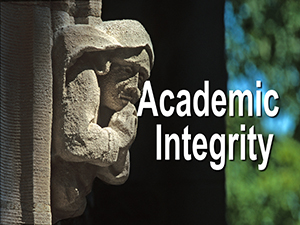This map indicates the worldwide reach of this year's Washington University in St. Louis Fulbright student scholarship recipients.
Once again, Washington University in St. Louis has strong representation in the prestigious Fulbright program. Twelve current or recent students received Fulbright U.S. Student Program scholarships to teach English or to conduct research abroad during the 2013-14 academic year.
Some faculty members also will participate in Fulbright programs this year, though those announcements aren’t expected until sometime this fall.
“The Fulbright U.S. Student program offers unique opportunities for our students with international interests in all disciplines and degree programs, and WUSTL has an outstanding faculty review committee that helps applicants submit the best possible application,” said Amy C. Suelzer, PhD, assistant director of International and Area Studies in Arts & Sciences and Fulbright Program adviser for WUSTL.
“Whether pursuing an English teaching assistantship or a self-designed research project, our applicants always impress us through their level of academic achievement, their dedication to their field of study and their commitment to the ambassadorial character of the Fulbright U.S. Student Program. Their success is a tribute to the strength of both our applicants and our process,” Suelzer said.
Below are some details about the students, who hail from Arts & Sciences, the Brown School and the School of Engineering & Applied Science. The students also share their thoughts and plans, in their own words.
Brayden Borcherding
Earned a bachelor’s degree in international and area studies, with a second major in Spanish, both in Arts & Sciences. Borcherding will work in the Foreign Languages Department of the University of Cartagena in Colombia, helping with English instruction and developing students’ knowledge of American culture. Borcherding also will undertake a social project.
“My ambition is to work with marginalized groups, like urban poor, to offer English language resources to those who don't normally have access to them.”
“Studying abroad in Chile cemented my attraction to living and working in Latin America. In the end, I am incredibly happy and fortunate to have been awarded this scholarship and am eager to take advantage of my time here in Colombia!”
Sophie Bracken
Earned a bachelor’s degree in Chinese, with a second major in anthropology, both in Arts & Sciences. Bracken will be teaching English to first- through fifth-grade students at Chongqing Elementary School in Taichung, Taiwan.
“Our job is to provide an opportunity for local students to interact with a native English speaker. This helps students understand that English is a mode of communication, not just something they are required to learn in school. … We also bring creative ideas and cultural experience into the class — for example, we teach students about holidays celebrated in the U.S. and the diversity of the U.S. population.”
“I hope to use this year to gain a professional command of Mandarin, while my work in the classroom will allow me to engage with the community in a useful way. I have yet to identify my career ambition and am looking to use this year to gain some perspective on my future goals.”
Carolyn Carpenter
Earned a bachelor’s degree in international and area studies, with a second major in political science, both in Arts & Sciences. Carpenter will be teaching conversational English as well as American culture at a co-ed public high school in Cheonan, South Korea.
“I knew I wanted to do something I would never have the chance to again before heading off to law school. I have always been interested in Korea and Korean culture for a number of academic and nonacademic reasons, so Fulbright Korea seemed like a good fit for me.
“By spending a year as a Fulbright grantee, I anticipate learning not only about Korea but also about myself and the ways I have a tendency to think or act as an American.”
Reilly Ellis
Earned a bachelor’s degree in Chinese in Arts & Sciences. Ellis will be co-teaching English, with a local English teacher, in Taiwan, and helping out with school activities such as the English club and holiday celebrations.
“During my time here, I'm excited to get to know and help out my students as well really dig into the culture and language.”
Daniella Farah
Earned a master’s degree in Islamic and Near East Studies in Arts & Sciences. Farah will be teaching English in Turkey.
Jennifer Head
Earned a bachelor’s degree in chemical engineering. Head will be working on a research project in Ethiopia.
She plans to work to fortify local edible oils and flour with vitamin A. Vitamin A shortage has devastating effects on Ethiopian children, causing blindness and increasing the mortality rate.
“I plan to work with local food processing companies, manufacturers and universities to research existing fortification processes and design (procedures) for the fortification of edible oils and wheat flour.
“During three prior trips to Ethiopia, I worked with 96 remarkable and ambitious children at the Mekelle School for the Blind. Aspiring journalists, professors and soccer players, their chances of achieving their dreams are limited by their impaired vision or blindness. These students are my primary motivation for this project.”
Bartlomiej Kudrzycki
Earned a bachelor’s degree in physics, with a second major in Germanic languages and literatures, both in Arts & Sciences. Kudrzycki will be teaching English at a Montessori elementary school in Berlin.
“I am looking forward to sharing discussions about German and American culture and learning about the public school system in one of Europe’s major metropolises. I am very excited about living in one of the cultural and cosmopolitan centers of Europe.”
Joanne Li
Earned a bachelor’s degree in anthropology, with a second major in environmental studies, both in Arts & Sciences. Li will help teach English and promote U.S. culture at a Brazilian federal university, working with Brazilian graduate students who study English.
The goal is to bolster the English language programs at the country’s federal universities ahead of the 2014 World Cup and 2016 Summer Olympic Games being held in that country.
“As an anthropology major, I had the opportunity to spend four months in Brazil through an SIT study abroad program. I look forward to returning to Brazil in order to improve my Portuguese, further understand the country’s preparation for the 2014 World Cup, and deepen my interest in global health.”
Bianca Lopez
Doctoral student in history in Arts & Sciences, working in the field of medieval history. Lopez will conduct archival research for a dissertation, specifically 15th-century last wills and testaments from the region of Le Marche, Italy.
“These documents indicate devotion to the Holy House of Loreto, a pilgrimage shrine thought to be the birthplace of the Virgin Mary, brought to Italy by angels. During my Fulbright year, I hope to uncover much more detail about the social and religious rise of this pilgrimage shrine, and how it became a medieval political, economic and devotional center.”
Hollee McGinnis
Doctoral student in social work. McGinnis will conduct research for her dissertation on the mental health and academic achievement of adolescents growing up in orphanages and adoptive families in South Korea.
"As a woman who was adopted from South Korea, I have been immersed, both personally and professionally, in adoption and permanency for abandoned and orphaned children.
“I am excited to get to learn more about the child welfare system in Korea provided by this Fulbright grant and to contribute to knowledge on how best to support orphaned and vulnerable children.”
Alina Sigmond
Earned a bachelor’s degree in history, with a second major in Spanish, both in Arts & Sciences. Sigmond will be teaching English in Spain.
Victoria Wesevich
Earned a bachelor’s degree in philosophy-neuroscience-psychology in Arts & Sciences. Wesevich will be working at the Uppsala Child & Baby Lab of Uppsala University in Sweden.
With supervision by lab manager Gustaf Gredebäck, PhD, she will use an eye-tracking measure to test 8-month-old infants’ understanding of the collaborative nature of joint actions.
“I cannot be more grateful for this opportunity and am excited to begin my project in beautiful Sweden. Continually surrounded by inspiring and driven scientists, I just hope the 10 months don’t fly by too quickly.”
Fulbright Program
The students are among the more than 1,700 U.S. citizens who will travel abroad this academic year through the Fulbright Program, the flagship international educational exchange program sponsored by the U.S. government.
It’s designed to increase mutual understanding between the people of the United States and those of other countries.
Fulbright grant recipients are chosen based on their academic or professional achievement and demonstrated leadership potential. The program operates in more than 155 countries worldwide.
Congress established the Fulbright Program in 1946 under legislation introduced by then-Sen. J. William Fulbright of Arkansas. The program’s primary funding source is an annual appropriation to the U.S. State Department.
























